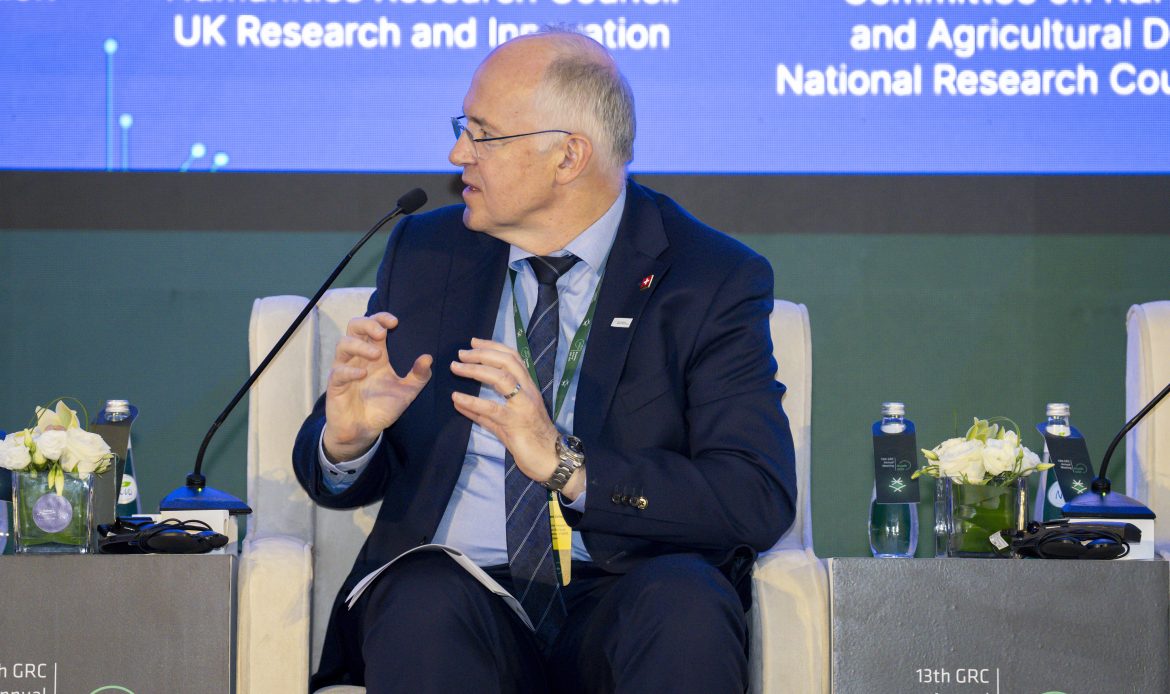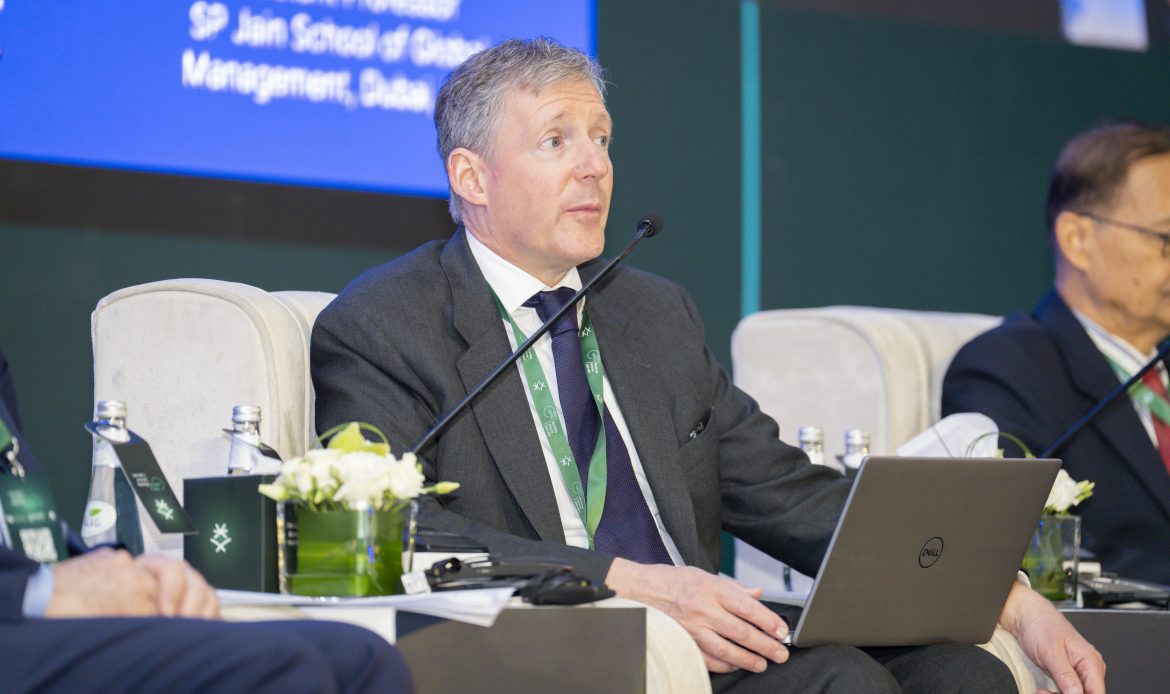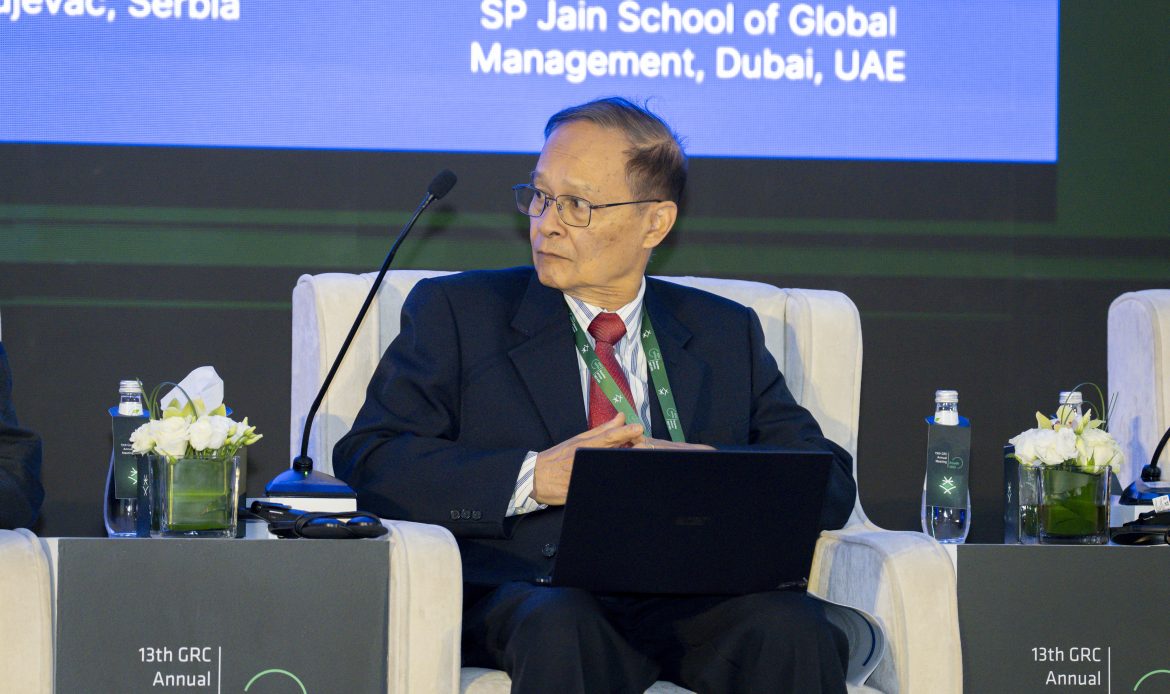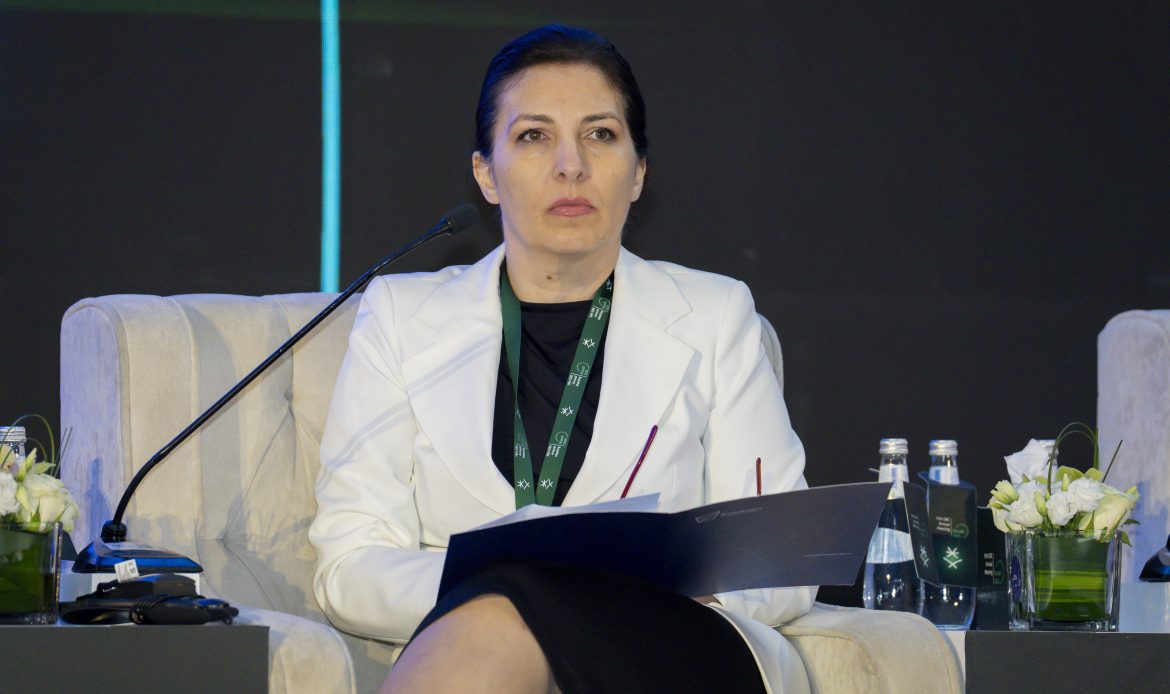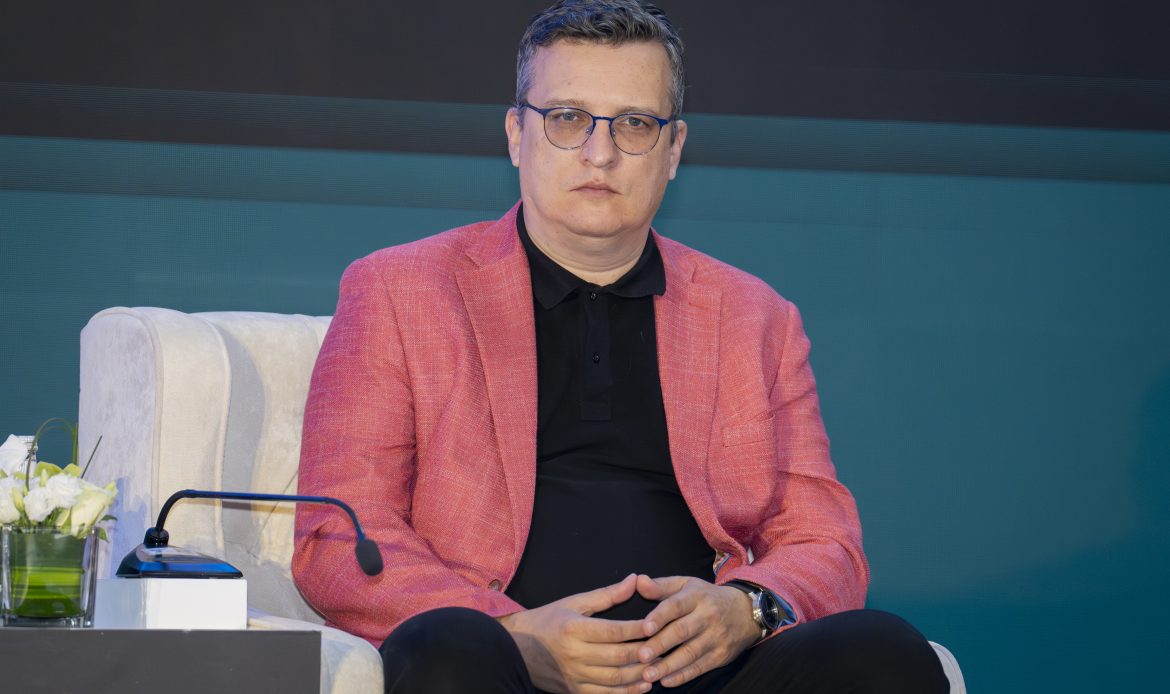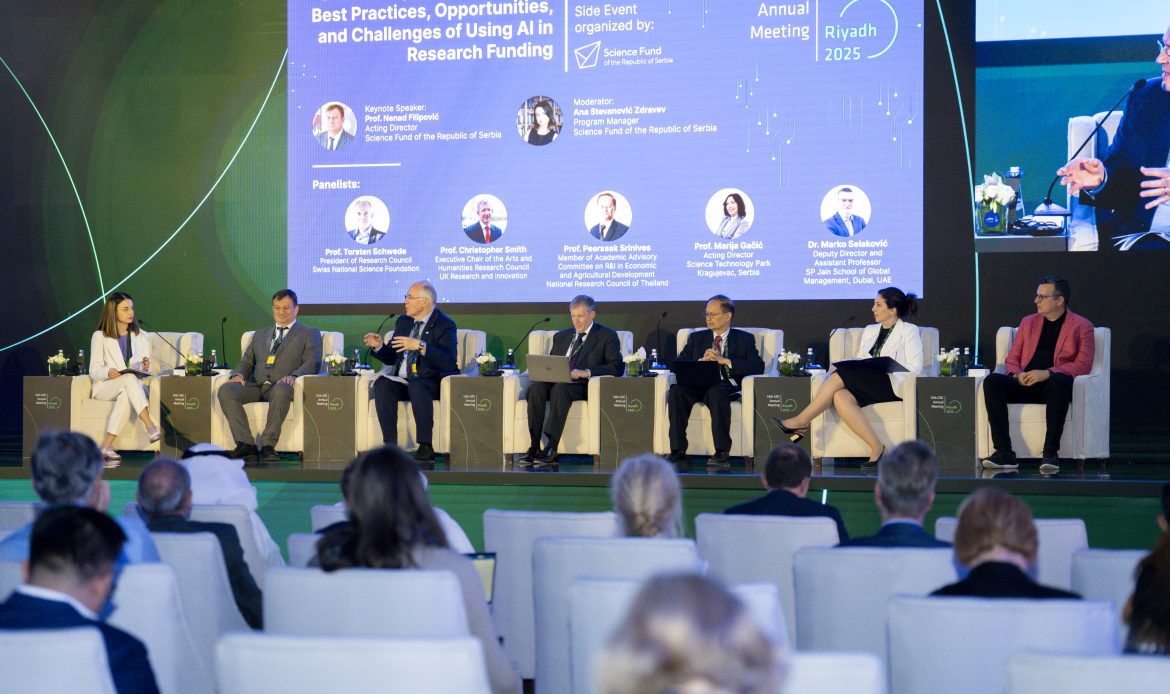Within the framework of the 13th Annual Meeting of the Global Research Council held in Riyadh in Saudi Arabia, Science Fund of the Republic of Serbia on 18 May organized High-Level Panel Discussion titled “Greater Impact: Experiences, Best Practices, Opportunities, and Challenges of Using AI in Research Funding”.
The Annual Meeting GRC, was co-hosted by the Research, Development, and Innovation Authority (RDIA), King Abdulaziz City for Science and Technology (KACST), and TÜBİTAK of Türkiye. As the first GRC meeting in the MENA region, it brought together participants from over 50 countries and all five GRC regions: Africa, Asia-Pacific, Europe, the Americas, and the Middle East and North Africa (MENA). The meeting focused on two main themes: Science for Sustainability and Mission-Oriented Research Funding, highlighting the role of research funders in addressing global challenges and supporting goal-driven research.
The Science Fund’s panel featured contributions from six representatives from the UK, Switzerland, Thailand, Serbia, and the UAE, showcasing a diversity of national approaches and strategies. Representatives of research funding organizations as well as experts in digital infrastructure, science policy, and AI ethics shared their experiences, and best practices related to the application of artificial intelligence in the research ecosystem. Discussions covered the use of AI across all stages of the funding cycle, from identifying strategic priorities and clustering project proposals, to reviewer matching and enhancing internal decision-making processes, as well as broader national strategies, infrastructure development, and ethical considerations crucial for its responsible implementation.
Prof. Nenad Filipović, Acting Director of the Science Fund of the Republic of Serbia, emphasized that artificial intelligence is already transforming the way research is supported and managed. He presented AI not as a distant concept, but as a practical tool, stressing that AI must support, not replace, human judgment. He underscored the Fund’s commitment to transparency, integrity, and ethical use. Prof. Filipović highlighted AI’s potential to anticipate trends and enable smarter, fairer funding allocation, and called for greater international collaboration to ensure shared standards and values in AI use.
Prof. Christopher Smith, Executive Chair of the Arts and Humanities Research Council, UK Research and Innovation emphasized the importance of discussing AI’s role in research and education, noting the UKRI’s £1 billion investment in R&D activities related to AI. Prof. Smith stated that UKRI, in collaboration with the Department for Science, Innovation and Technology, is currently piloting two meta-science projects, one focused on the role of randomized trials in evidence synthesis to improve research quality. In parallel, a study with the University of Sheffield is exploring how AI might influence peer review outcomes, aiming to better understand its potential impact on research evaluation. He highlighted the need to address biases in AI, which are often exaggerated by flawed databases, and stressed the ongoing necessity of revising and refining knowledge.
Prof. Torsten Schwede, President of Research Council at the Swiss National Science Foundation highlighted the importance of addressing biases in foundational models, particularly in generative AI, which are influenced by training data. He called for the development of truly open models to ensure reliability, traceability, and retainability. The Swiss AI initiative plans to release an open foundational model, adaptable to other languages, and global research communities. The SNSF encourages responsible AI use in scientific proposals while ensuring data privacy and strictly prohibits the use of publicly available AI tools in the review process in order to safeguard the confidentiality and privacy of researchers’ work.
Prof. Peerasak Srinives, Member of Academic Advisory Committee on Research and Innovation in Economic and Agricultural Development in the National Research Council of Thailand discussed the integration of AI in the research system of Thailand, highlighting its use in literature review, data analysis, and paper coherence. The National Commission on Science Research and Innovation Promotion (CSRP) is the highest body controlling research in Thailand, with the National Research Council of Thailand (NRCT) being the largest funding body. The Thailand Science Research Innovation (TSI) and CSRP use AI to search big data from the Thailand National Research Repository (TNR) to set research priorities. They are developing a hybrid search, documentary chat, and a chatbot to assist researchers, although these tools are not yet perfect.
Prof. Marija Gačić, Acting Director of the Science and Technology Park Kragujevac, contributed to the discussion by presenting Serbia’s broader strategic investments in digital infrastructure and innovation ecosystems. She emphasized the role of government-backed initiatives, such as the state data center in Kragujevac, equipped with level four security and a supercomputer for AI training, in providing foundational support for AI-based research and services. She outlined how Science and Technology Parks in Belgrade, Niš, Novi Sad, and Kragujevac are strengthening connections between academia and industry, facilitating the growth of AI startups and the implementation of research funded by national and EU programs such as Horizon Europe.
Dr. Marko Selaković, Deputy Director and Assistant Professor at SP Jain School of Global Management in Dubai, emphasized that it is essential that we all share a common understanding of what AI ethics entails. He underlined the core principle of “do no harm,” stressing that the responsible use of AI in research must not compromise anyone’s safety. Special attention, he noted, must be given to data protection, the right to privacy, and the need for universal ethical standards. He highlighted the importance of adaptive governance and inter-institutional collaboration as key to expanding the global body of knowledge, stating that AI can significantly enhance academic cooperation, but only if it is meaningful and not just box-ticking. According to him, accountability and transparency are critical pillars: we must clearly define who is responsible for AI-driven decisions, and the processes must be explainable and understandable.
Panelists concluded that while AI is already reshaping the research funding landscape, its responsible application depends on clearly defined ethical frameworks, strong human oversight, and continuous dialogue between institutions. By aligning technological innovation with values such as transparency, collaboration, and fairness, research funding organizations can ensure that AI becomes a trusted partner in advancing science for global benefit.
Discussion was moderated by Ana Stevanović Zdravev, Program Manager in the Science Fund of the Republic of Serbia.





